
Liz Kruesi
Liz Kruesi is a freelance science journalist who focuses on astronomy. She is based in Colorado. She has written about astronomy and space since 2005, and received the AAS High-Energy Astrophysics Division science journalism award in 2013. She holds a bachelor’s degree in physics from Lawrence University in Appleton, Wisc.

Trustworthy journalism comes at a price.
Scientists and journalists share a core belief in questioning, observing and verifying to reach the truth. Science News reports on crucial research and discovery across science disciplines. We need your financial support to make it happen – every contribution makes a difference.
All Stories by Liz Kruesi
-
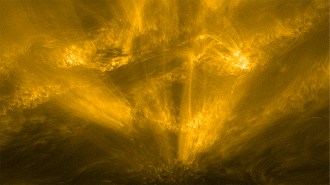 Astronomy
AstronomyThe Solar Orbiter spacecraft spotted a ‘hedgehog’ on the sun
In its closest flyby yet of the sun, the Solar Orbiter came within 48 million kilometers of our star, revealing new details.
-
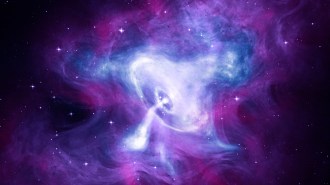 Astronomy
AstronomyPulsars may power cosmic rays with the highest-known energies in the universe
Earth is pelted by energetic particles from space. The source might be the magnetic remains of massive stars, a new study suggests.
-
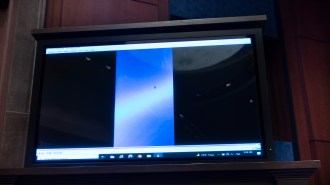 Science & Society
Science & SocietyWhy some scientists want serious research into UFOs
Science grapples with unknown phenomena all the time. Investigating UAP and whether they're related to aliens shouldn't be different, researchers say.
-
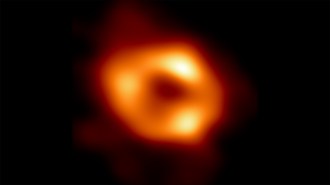 Astronomy
AstronomyWe finally have an image of the black hole at the heart of the Milky Way
Observations from the Event Horizon Telescope reveal the turbulent region around our home galaxy’s black hole, Sagittarius A*, in new detail.
-
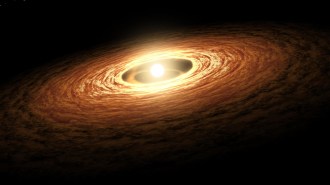 Astronomy
AstronomyThe sun’s searing radiation led to the shuffling of the solar system’s planets
As the young sun’s radiation evaporated gas from its surrounding disk, it triggered a jumbling of the giant planets’ orbits, simulations suggest.
-
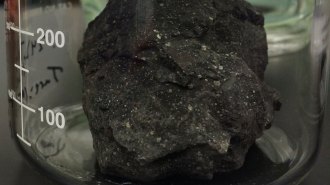 Space
SpaceAll of the bases in DNA and RNA have now been found in meteorites
Scientists have detected adenine and guanine in meteorites for decades and seen hints of uracil. But cytosine and thymine had remained elusive.
-
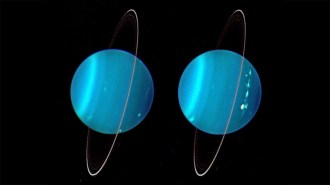 Planetary Science
Planetary ScienceU.S. planetary scientists want to explore Uranus and Enceladus next
A report on recommendations for the next 10 years of U.S. planetary science prioritizes sending an orbiter to Uranus and an “orbilander” to Enceladus.
-
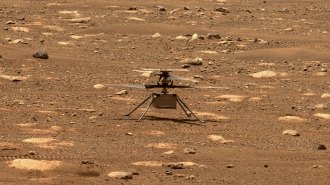 Planetary Science
Planetary ScienceHere’s how NASA’s Ingenuity helicopter has spent 1 year on Mars
The first flying robot on the Red Planet arrived as a technology demonstration. It’s now a trusty scout for its rover partner, Perseverance.
-
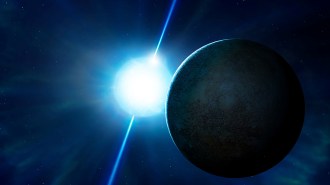 Astronomy
AstronomyCrumbling planets might trigger repeating fast radio bursts
Mysterious blasts of cosmic radio waves might be due to planets sweeping extremely close to their host neutron stars.
-
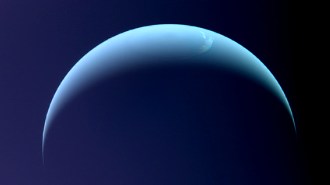 Planetary Science
Planetary ScienceNew thermal maps of Neptune reveal surprising temperature swings
Neptune's atmospheric temperatures show a global drop and later, a weird isolated spike at the south pole. Scientists don't yet know why.
-
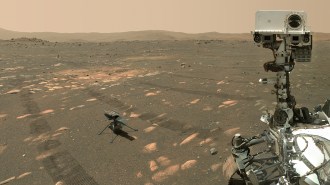 Planetary Science
Planetary ScienceMars has two speeds of sound
High-pitched clacks from a laser on NASA’s Perseverance rover zapping rocks traveled faster than the lower-pitched hum of the Ingenuity helicopter’s blades.
-
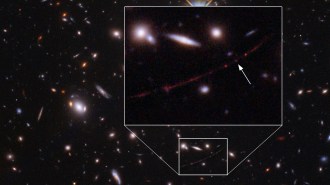 Astronomy
AstronomyA star nicknamed ‘Earendel’ may be the most distant yet seen
Analyzing Hubble Space Telescope images revealed a star whose light originates from about 12.9 billion light-years away, researchers say.